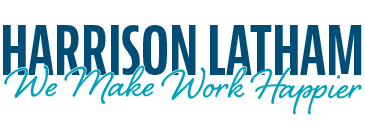We offer multiple assessments for executive and leadership development, team building, and organizational strategic planning. The first step is to determine goals and desired outcomes. What information will be most helpful to achieve these goals and outcomes? This will help us build the roadmap to determine which assessments will give use the most useful information.
Organizational or Team Level Assessments
Organizational Development
This assessment is rooted in the idea that a successful organization needs to be sustainable, predictable, stable, consistent and have an emotional connection. To that end, the five disciplines measured are: strategy, business development, people, execution, and mission. This assessment report also breaks down results by the following demographics: gender, position, tenure, and level of customer engagement. Overall performance strengths and concerns are provided. This assessment report does not provide suggestions for improvement, but rather serves as a source of data for strategic planning.
Team / Organizational Happiness
We use Friday Pulse for happiness assessments. There is an initial survey to gather baseline data around the happiness of the team. This is followed by a weekly pulse survey along with a weekly team stand up to monitor and increase happiness levels. This assessment is a 12-month commitment with proven results in increasing happiness.

Custom Assessments
Sometimes, the need for a customized assessment arises. Harrison Latham will work with Oakland to determine what data would be most useful and then we can create a partially or fully customized assessment to meet those needs. Custom assessments can be at the individual, 360, team, department, or organizational level.
Individual Assessments (including 360s)
Energy Leadership Index (ELI)
This is an attitudinal assessment that is useful at every level of leadership. The ELI results show what kinds of energy a person brings to their typical every day working life as well as what kinds of energy they tend to bring when under stress. (victim energy, win-win energy, compassionate energy, etc.) This assessment provides a powerful tool for not only understanding one’s energy, but also for managing energy in ways that will best serve situations and teams. The ELI is available as a stand-alone assessment as well as a 360 assessment.
Emotional Intelligence (EIQ)
This provides an analysis of the four areas of emotional intelligence: self-awareness, self-management, social awareness, and social management. Most people are far less self-aware than what they realize, and low levels of self-awareness contribute greatly to poor leadership skills. This assessment provides not just the details of the four quadrants of emotional intelligence, but also practical tools for increasing skills in each of the four areas. The EIQ is available as a stand-alone assessment as well as a 360 assessment.
360 Leadership Skills
This is a 360 assessment that measures eight basic leadership skills: communication, decision-making, delegation, emotional intelligence, managing change, setting goals and standards, team building, and visualizing the future. It provides a clear picture of strengths and weaknesses along with advice for improvement in each area.
Core Competencies
This assessment is designed to provide ratings of current competencies, ultimately providing the user with a plan for developing skills that are below the bar and continuing toward mastery in areas where they are strong. There are 25 competencies measured, including: planning and scheduling work, managing and prioritizing time, exceeding customer expectations, identifying and solving problems, negotiating skills, resolving conflict, giving and receiving feedback, creative thinking, and counseling, coaching & training. Recommendations for improvement are included for each competency.
Critical Thinking
This assessment provides objective feedback, information, and practical improvement recommendations regarding six key areas that affect your critical thinking: intuitive thinking, practical thinking, system/conceptual thinking, personal strengths, execution ability, and objective ability. The report includes customized suggestions for improvement in each area to help the user understand and overcome their potential biases, blind spots, and filters to become a better critical thinker.
Download the Assessments Info Flyer



 Let’s talk about your organization, your team and your goals. How can assessments fit into this picture and provide the data you need to help your team succeed?
Let’s talk about your organization, your team and your goals. How can assessments fit into this picture and provide the data you need to help your team succeed?